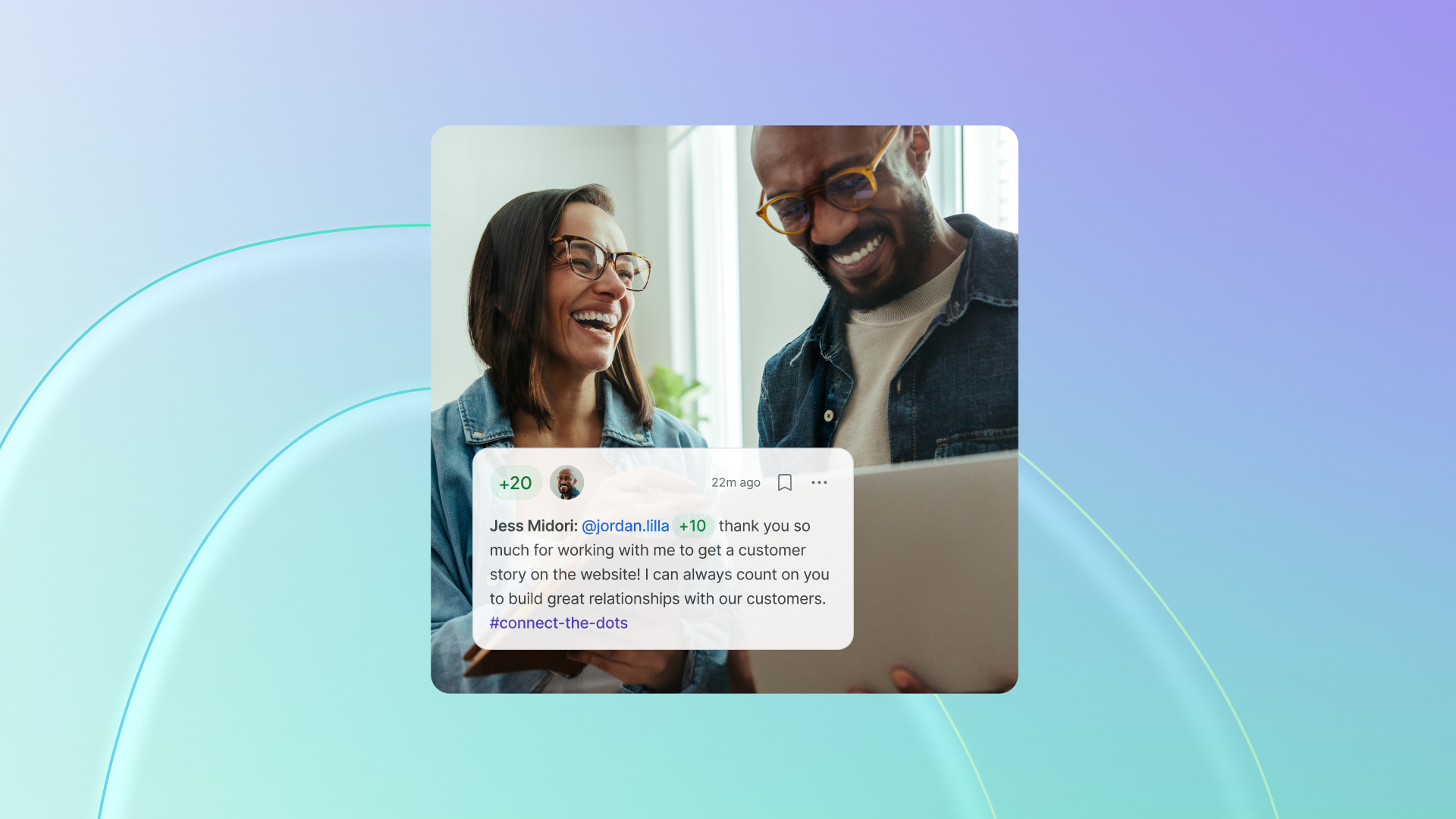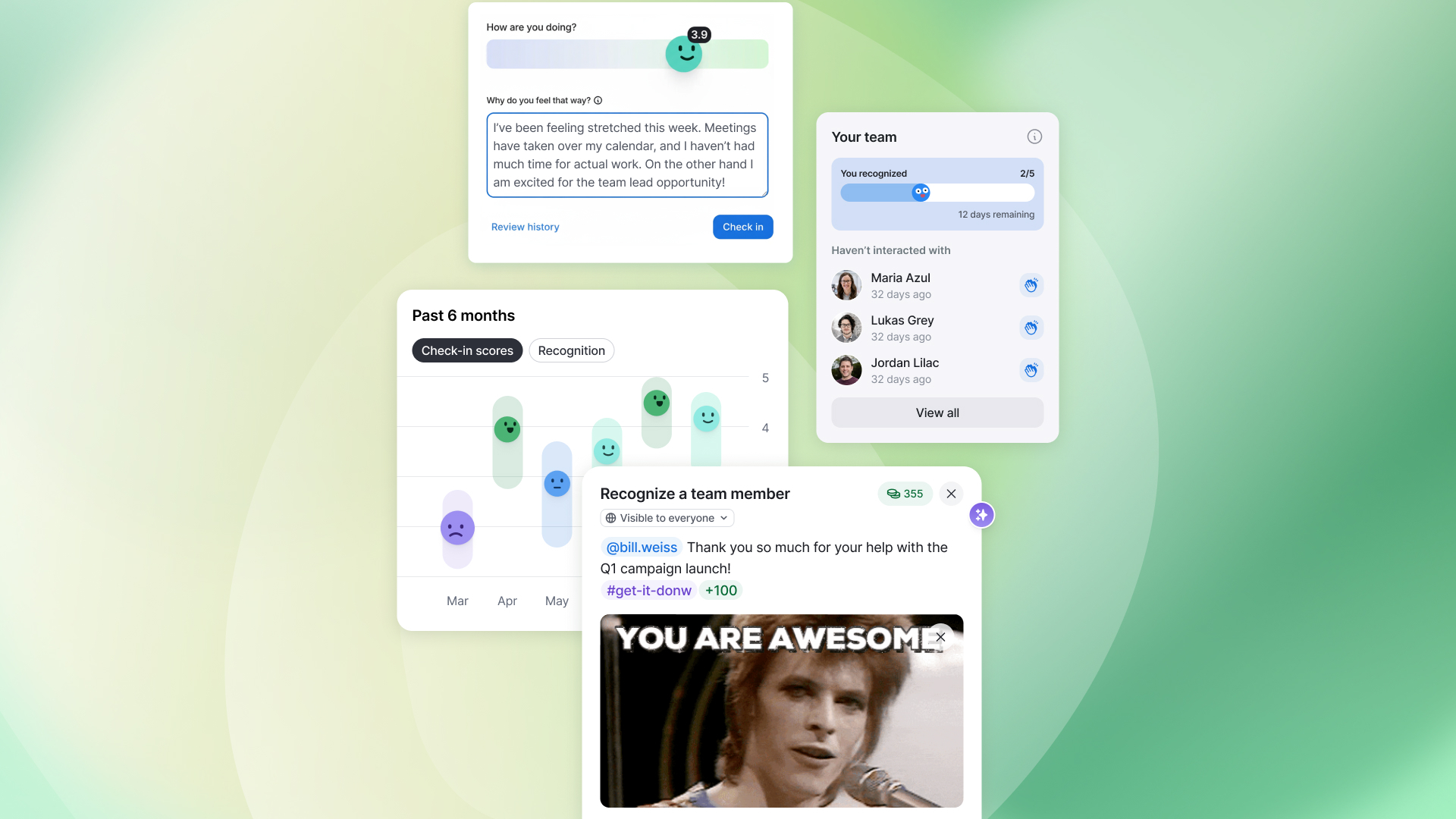It's Our Responsibility as HR Professionals to Address Racial Injustice

Since Bonusly’s beginnings, we’ve been guided by the belief that people are the critical driver of business success. As an HR product, we aim to make sure every employee feels seen, respected, and valued.
That includes our Black colleagues.
“Our vision is to build a world of work that works for all.”
–Society for Human Resource Management (SHRM)
For a long time, employees have been asked to leave their identities at the door. This is an unreasonable, and frankly, impossible ask. For Black and other people of color, race often informs every part of our lives.
To find empathy and insight into what your Black employees might be experiencing and why it can’t be disconnected from their work, check out these articles:
- Maintaining Professionalism In The Age of Black Death Is….A Lot
- Your Black Colleagues May Look Like They’re Okay — Chances Are They’re Not
- Y’all Hear Us, But You Ain’t Listening
So, you might be wondering… “Should I say something? What should I do?”
Consider this—If Human Resources is the department responsible for crafting and supporting the entire employee experience, then Human Resources is also responsible for addressing and combating social injustices in the workplace.
We can't necessarily tell you what to do. Everyone has their own comfort levels with forming relationships with colleagues, and we can’t tell you the best way to reach out to your Black team members—because everyone is different!
It’s ultimately up to you to figure out how to best acknowledge big cultural moments and events. But what we can do is provide resources that'll help you get there.
Educate
There is a wealth of great resources on the internet and elsewhere. There’s no better way to educate yourself than by seeking out Black voices. Here’s a short list of who you can turn to:
- Your own employees. It’s important to not tokenize Black employees, but if they’re speaking up, you should be listening! #AmplifyMelanatedVoices not only this week, but always.
- Nikole Hannah-Jones is a Pulitzer Prize-winning reporter covering racial injustice for The New York Times Magazine and creator of the landmark 1619 Project. You can start with her article as an introduction to the initiative: America Wasn’t a Democracy, Until Black Americans Made it One.
- Rachel Cargle is an activist academic writer, and lecturer. Her activism and academic work are rooted in providing intellectual discourse, tools, and resources that explore anti-racism.
- Brittany Packnett is a NBC News and MSNBC Contributor and the former Director’s Leader and Fellow at Harvard’s Institute of Politics. She’s been a lifelong activist and is a proud member of the Ferguson Uprising, Brittany is the co-founder of Campaign Zero, a policy platform to end police violence. You can hear her insight and perspective regularly as the co-host of Crooked Media’s Pod Save The People.
- Ibram X. Kendi is a professor and the director of The Antiracist Research and Policy Center at American University. Get started by reading his award-winning books, Stamped from the Beginning: The Definitive History of Racist Ideas in America and How to Be an Antiracist.
- Kimberlé Crenshaw is an American civil rights advocate, a leading scholar of critical race theory, and is known for developing the theory of intersectionality. Listen to and learn from her on the Intersectionality Matters! podcast.
- Ava DuVernay is a writer, producer, director and distributor of independent films. She’s a winner of the Emmy, BAFTA and Peabody Awards, and an Academy award nominee. Her documentary, 13TH, examines the intersection of race, justice, and mass incarceration in the United States.
Train
When you’re ready to bring that education into the workplace, it can be tempting to act quickly and influence the conversation. However, we recommend bringing in an external group or speaker to facilitate these conversations.
An outside group will have experience guiding these discussions, dealing with any conflict that could arise, and can serve as an expert and neutral ground to your employees. Groups like Paradigm help make individuals aware of the implicit biases and racism impacting your workplace—which is the first step towards inclusion.
Donate
If you have the privilege to donate, you can influence real change with monetary support. Many companies are donating or offering matched donations—consider if that’s a possibility for your organization.
Not everybody has the means to donate or volunteer, so taking action as a company and as a leader in HR is a great step forward in making societal progress. It also sends a strong message to your team that your company is willing to stand by its values.
Your people will remember how your company reacted during this time.
It’s also important to choose a relevant charitable organization to donate to. Popular choices include local bailout funds or funds for the families of George Floyd, Breonna Taylor, Ahmaud Arbery, Tony McDade, Nina Pop, and so many others lost to police brutality and lynching.
Here are some organizations that directly support anti-racism causes in impactful ways:
- The NAACP Legal Defense and Educational Fund, Inc. (LDF) is America’s premier legal organization fighting for racial justice. Through litigation, advocacy, and public education, LDF seeks structural changes to expand democracy, eliminate disparities, and achieve racial justice in a society that fulfills the promise of equality for all Americans.
Bonusly users have donated $31,490 to @NAACP_LDF, far surpassing our $25K matching goal! 🎉 That's over $56K (and counting!) that'll help LDF fight for structural changes to fulfill the promise of equality for all Americans. 😲 https://t.co/RvVFWXImv7
— Bonusly from Home (@bonusly) June 4, 2020
- The Minnesota Freedom Fund pays criminal bail and immigration bonds, believing that they are an unjust way for the criminal justice system to target populations for structural violence. They work toward a society that does not condition pretrial freedom on class or identity, that has ended mass incarceration, and that invests in restorative and transformative justice.
- Know Your Rights Camp has launched a Legal Defense Initiative, where they’ve identified and teamed up with top defense lawyers nationwide to provide legal resources for those in need.
- Black Visions Collective is an organization dedicated to Black and collective liberation. Through the development of powerful strategic campaigns, they seek to expand the power of Black people across the Twin Cities metro area and Minnesota.
- Reclaim the Block organizes around policies that strengthen community-led safety initiatives, reduce reliance on police departments, and moves money from the police department into other areas of the city’s budget to truly promote community health and safety.
- Campaign Zero supports the analysis of policing practices across the country, research to identify effective solutions to end police violence, technical assistance to organizers leading police accountability campaigns, and the development of model legislation and advocacy to end police violence nationwide.

- The Okra Project is a collective that addresses the global crisis faced by Black Trans people by providing home cooked, healthy, and culturally specific meals and resources to Black Trans people facing food insecurity.
- The American Civil Liberties Union (ACLU) has been at the center of nearly every major civil liberties battle in the U.S. for more than 100 years. They provide legal representation in cases involving issues of civil liberties and constitutional rights ranging from administrative hearings to trials and appeals.
Moving forward
The subject of continued racial injustice can be difficult for companies to address, but it’s your responsibility as an HR professional to facilitate those conversations in a productive way. To create an inclusive and equitable environment for all workers, it’s imperative that you do the work to be anti-racist.
Your people are what drives your company’s success. In turn, you need to take action for those people and their communities.
For more insight into what Bonusly is doing to actively combat racism and bias in the workplace, see Bonusly CEO Raphael Crawford-Marks’ statement on LinkedIn.







